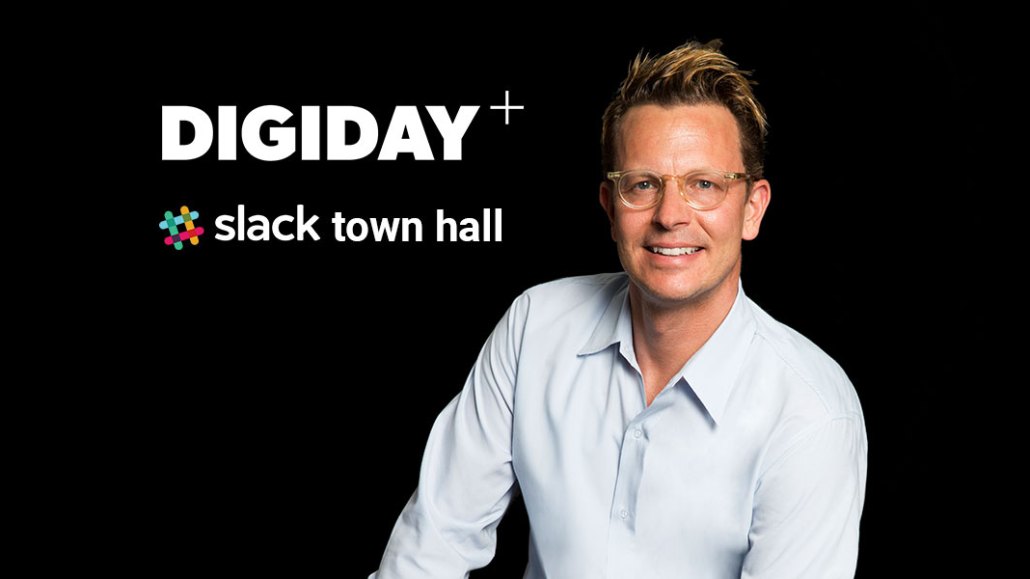Secure your place at the Digiday Media Buying Summit in Nashville, March 2-4
‘Look for businesses that are ripe for disruption’: A Slack town hall with Domino CEO Nathan Coyle

On Thursday, Domino CEO Nathan Coyle stopped by the Digiday+ Slack for our latest Slack town hall, which we hold every two weeks with change-making digital media and marketing executives.
Coyle, who’s led Domino for a little more than a year after a run as svp and gm at Refinery29, discussed why he’s focused more on Pinterest and Instagram than Facebook, what he thinks of Amazon and how he balances Domino’s pursuit of scale with its focus on collaborations with brands such as pop-up stores.
He also shared some news: Domino will soon launch a brand-licensing operation.
Below are excerpts from the conversation, lightly edited. Join Digiday+ to make sure you catch the next one.
Being small makes it easier to expand into new revenue areas
Being smaller allows us to be more nimble. It also allows us to really push the boundaries of brand elasticity. More established/legacy brands have a tougher time pursuing new businesses, as the audience doesn’t expect it. We are a young-enough brand that we can surprise and delight in many ways!
Pop-up stores aren’t just a gimmick
Pop-up stores check a lot of boxes: 1. Bring our brand into the real world where our readers and fans can experience Domino in real life, 2. Monetization through multifaceted brand partnerships, and 3. Grow our relationship with amazing makers of products whose merchandise we sell in [our] store.
Selling media and doing brand licensing at the same time is tricky
We look at categories [for brand licensing] that are not as big from an advertiser spending perspective. We look to get into business with the marketers who are also the biggest.
What Pinterest is best for
We’ve had real success sourcing visits (sessions) as well as data from Pinterest. This is driven by a couple of factors: One, our vertical (home, design, DIY) is super vibrant on Pinterest. Second, our strategy is totally different on Pinterest versus other platforms. It’s not all about growing followers — it’s about playing in the sandbox with (lots of) others.
If you’re a publisher dependent on Facebook, your focus has to be video
It all comes down to video on Facebook. For publishers with robust video programs (Vice, Buzzfeed, etc.) Facebook is key. But it is and will continue to be a cat-and-mouse game regarding who’s making what kind of money and how.
More in Media

From feeds to streets: How mega influencer Haley Baylee is diversifying beyond platform algorithms
Kalil is partnering with LinkNYC to take her social media content into the real world and the streets of NYC.

‘A brand trip’: How the creator economy showed up at this year’s Super Bowl
Super Bowl 2026 had more on-the-ground brand activations and creator participation than ever, showcasing how it’s become a massive IRL moment for the creator economy.

Media Briefing: Turning scraped content into paid assets — Amazon and Microsoft build AI marketplaces
Amazon plans an AI content marketplace to join Microsoft’s efforts and pay publishers — but it relies on AI com stop scraping for free.








